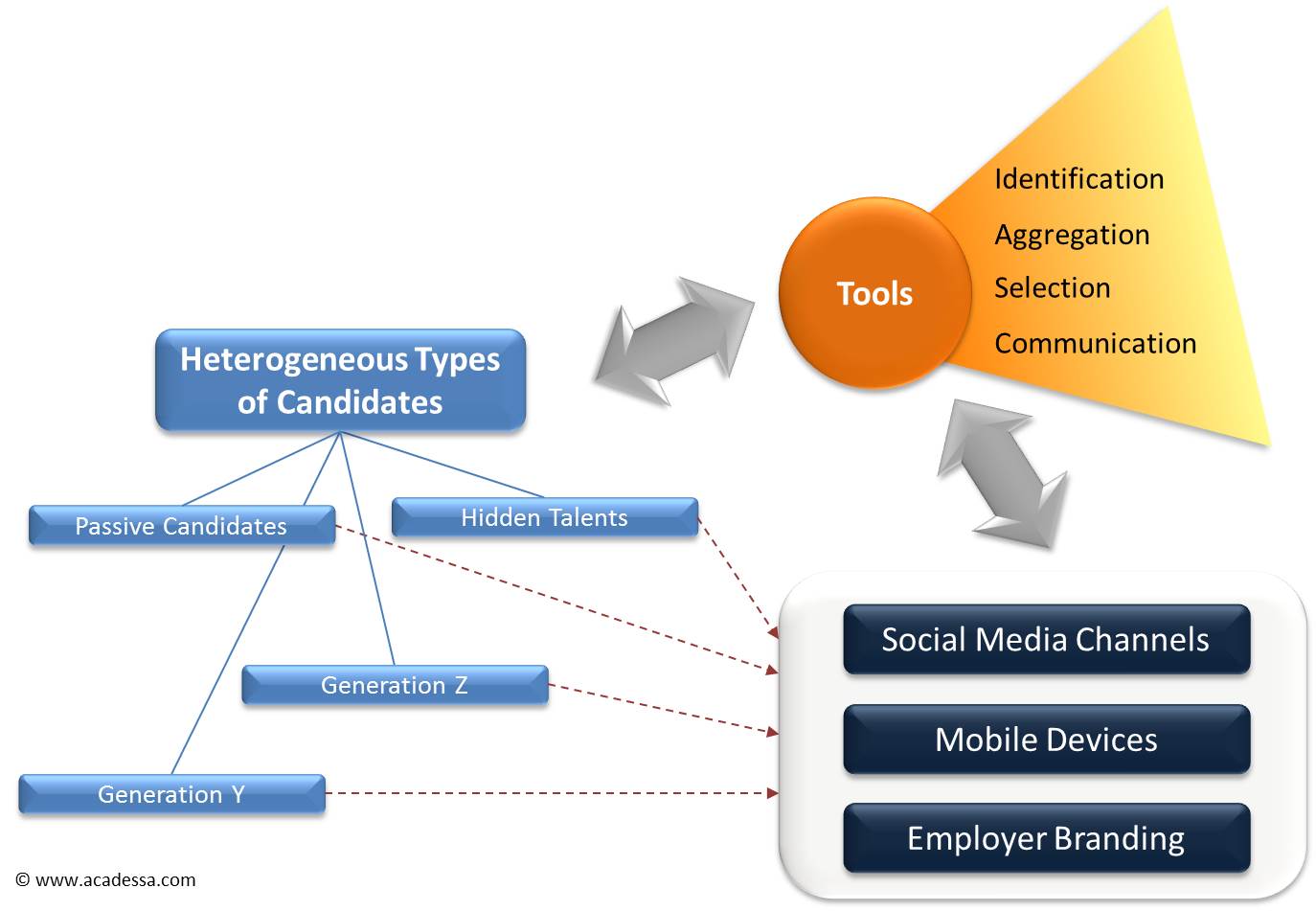Some companies such as law firms in Germany rate candidates still by their final marks mainly. Even if candidates seem to have a good fit in experience and already worked some years in the same legal field they are not considered for an interview below a specific mark. This is raising the question which are today’s relevant quality criteria for a candidate selection?
As a scientific research recently found out recruiters spend an average of six seconds to scan a resume and to decide if a candidate fits or not – recruiters self-reported they would spend four to five minutes per resume (source: TheLadders). This is not a surprise as time is always critical in recruiting projects. On the other hand quality is critical too. It just makes the resume to the deciding admission ticket. Well, today everybody can write everything in his profile and even resume. So how to verify information are correct? And how to find passive talents that did not pimp their profile or resume? Maybe here are new social tools like TalentBin the future. TalentBin for example tries to aggregate and combine public available social information from multiple sources in the net to create an information profile.
In my interviews some candidates also for executive positions reported about a very complex recruiting process. After they have been contacted they had up to four telephone interviews with different recruiters and ended up on a shortlist with a high number of candidates (up to 10) that was prepared for the client company. Unfortunately such processes are mostly not explained in the first interview otherwise many candidates might abandon the application. How much time would an experienced professional who is not desperately searching for a job invest in such a process with a 1:10 chance of success even after several interviews? Thinking of the Generation Y it is hard to believe that anyone would be interested – and this generation will represent 35% of the workforce in 2020. The Generation Y expects that companies apply for candidates and they demand a very personal and lean recruiting process.
For sure process and selection criteria are often set by the client company and recruiters might be “only” the executing part. On the other hand external (and internal) recruiters should understand themselves also as consultant of the client (or internal business partner) how to build a modern and fitting recruiting process with appropriate quality criteria. They have to act as change agent in a changing external and internal environment.
I made myself a lot of positive experience with external recruiters and also how I was contacted in active sourcing projects. Also there were reported many positive experiences in my interviews. But overall it still seems that a transformation of the recruitment process has often not started neither in the HR department of companies nor at executive search consultants or agencies. In consideration of the HR top trends 2014 (demographic change, shortage of qualified stuff and social media) this sounds surprisingly (source: Recruiting Trends 2014). Technology is already changing how we work and requiring different and new skill sets (source: Deloitte 2014). That means also that recruitment needs a shift, new HR skills, new HR technologies and a new approach for talent acquisition. In a global study only 13% of asked HR leaders claimed to be ready for the new challenges in their department (source: Deloitte 2014).
Finally there are some simple recommendations for recruiters based on the input from my interviews:
- Apply for a candidate
- Scan the candidate, not only the profile or CV
- Consult your client (or internal business partners) to choose a smart and lean selection process and discuss the quality criteria

